Why would some people choose not to wash?
Our skin is covered in more than 1,000 types of bacteria, plus viruses, fungi and mites. Don’t go bathing in antibacterial hand gel, though: most of these are harmless, and some are beneficial to us.
This ecosystem is called the ‘skin microbiome’, and can actually protect us from illness. The bacterium Pseudomonas aeruginosa, for instance, produces pseudomonic acid, which protects us from staphylococcal and streptococcal infections.
More noticeably, the skin microbiome regulates the way we smell. Sweat itself doesn’t smell: the odour filling a packed tube train comes from the bacteria that break the sweat down.
So why do some people stink? That depends on the exact population of microbes that live on your skin, since different bacteria break the sweat molecules down into different components. In fact, microbiologist Dr Chris Callewaert, also known as Dr Armpit, has shown that an underarm bacterial transplant from the fresh-smelling to the stinky can eliminate body odour.
Learn more about the skin in our podcast with Dr Monty Lyman:
Clearly, then, the microorganisms living on our skin can provide a service that soap and daily showers sometimes can’t. So some people choose to avoid bathing – apart from hand-washing and cleaning off dirt – and let the bacteria do the work instead.
The idea is that frequent use of soap products damages the skin microbiome, and we’d be better off if we just let it be. The soap-free often report that, if you can push through the inevitable smelly period when you haven’t showered in a week, you will eventually stop smelling.
What can you do instead of washing?
Chemical engineer David Whitlock hasn’t showered in 15 years, and instead tops up his microbiome with ammonia-oxidising bacteria (AOB). Drawing inspiration from horses rolling in the dirt, Whitlock harvested AOB from soil and tested it on himself, which reportedly stopped him from smelling.
He is now the founder of AOBiome, which sells a range of toiletries containing AOB. The company claims their products, sold under the name Mother Dirt, will “bring harmony and balance back to your skin microbiome”.
Is there such a thing as ‘too clean’?
Rates of allergies such as hay fever and asthma have been increasing since the Industrial Revolution. In 1989, epidemiologist Prof David Strachan suggested a possible reason for this: children were contracting fewer infections.
He proposed that infections at an early age equipped the immune system to deal with allergens such as pollen. So the general increase in cleanliness deprived children of infections that protected them against allergic diseases.
This idea, known as the hygiene hypothesis, quickly took hold. “That gave rise to this idea that we are too clean for our own good,” says Dr Sally Bloomfield, honorary professor at the London School of Hygiene and Tropical Medicine. It’s a commonly mistaken view that growing up in our ultra-sterile homes causes allergies.
Read more about cleanliness:
- A scientist’s guide to life: how to master spring cleaning
- Many cleaning products say they kill 99.9 per cent of germs. Should I worry about the remaining 0.1 per cent?
- Why do we associate citrus smells with being clean?
To say that we’re currently too clean is an oversimplification. “I think that’s a complete red herring,” says Bloomfield. “We don’t need exposure to harmful germs to prevent allergies; we need exposure to beneficial germs.” Besides, as hygienic as we are, we can never make ourselves sterile. It’s not the number of microorganisms, but the type.
Our skin microbiome needs a wide range of species, but we can do very nicely without the harmful ones. Due to various lifestyle changes, we have gradually lost touch with our ‘old friends’, the microbes that co-evolved with humans and were present even in early hunter-gatherers.
These are the ones that help us to develop a strong immune system, and in turn stop it overreacting to allergens. If we can get back these old friends, then we can quite contentedly wash away the pathogens, most of which evolved in the last 10,000 years, without doing us any harm.
How can you get in touch with ‘old friends’?
Earlier this year, a study published in the Journal Of Investigative Dermatology found that a child’s skin microbiome is most closely related to their mother’s, and there was a noticeable difference between vaginal births and Caesarean sections, a finding which is also true for the gut microbiome. Most likely, a baby picks up their skin microbes during the birth, adopting these old friends from their mother’s vaginal microbiome.
“The way we’ve lost exposure to beneficial germs is not through household cleanliness, it’s through lifestyle changes such as C-section childbirth rather than natural childbirth, and bottle-feeding rather than breast-feeding,” says Bloomfield. “That’s a vital time when children are getting exposure to the beneficial organisms they need.”
Of course, pregnant women may well have more pressing concerns than skin microbes when choosing a Caesarean section, and breastfeeding may not always be an option for mothers.
So some new parents have opted for ‘vaginal seeding’, a process that involves swabbing a newborn with the mother’s vaginal fluid straight after a C-section has taken place. However, this is not necessarily advisable: the authors of a 2018 review of the evidence described it as “unjustified and potentially unsafe”.
What can you do to ensure your child develops a strong immune system?
“It’s about getting a balance,” says Bloomfield. “We should encourage children to interact with each other, to get dirty, and we should treat them in the right way with breastfeeding and the right diet and avoiding antibiotics if we can.”
So it’s perfectly fine for kids to get muddy in the garden – incidentally, most of the microbes found in garden soil will be harmless anyway. But then, when they come inside for a snack, protect them from illness by making sure they wash their hands.
“What we’re trying to put forward is this idea of targeted hygiene: intervening in the places and the times that matter,” Bloomfield says. “We call these ‘the moments for hygiene’. It’s about containing that risk at the moment when it is a risk.”
So if you don’t want to wash most of your skin with soap products, you can still protect yourself from illness by practising targeted hygiene (see below).
Visit the BBC's Reality Check website at bit.ly/reality_check_ or follow them on Twitter@BBCRealityCheck
What are the moments for hygiene?
1
When using the toilet
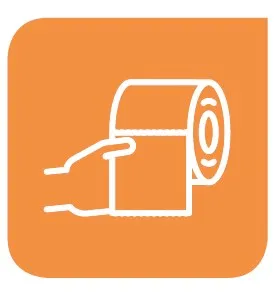
Keep yourself clean and always, always wash your hands.
2
After handling rubbish
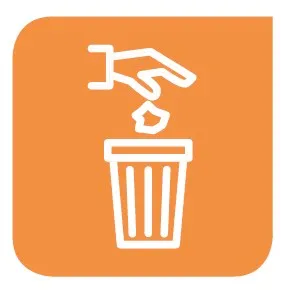
Remember to wash your hands after taking the bins out.
3
When preparing food

Wash your hands before touching food. Wash fruit and veg. After preparing raw meat, wash your hands and utensils straight away.
4
When eating with your hands

Hands are a big carrier of microbes, so make sure not to put harmful germs straight in your mouth.
5
After coughing, sneezing or blowing your nose

Wash your hands and dispose of used tissues straight away.
6
When looking after someone who's ill
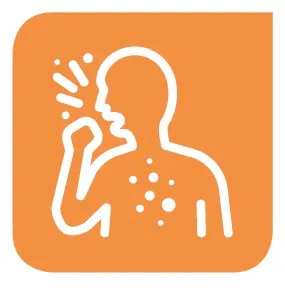
If they’re coughing, sneezing or vomiting, they’re most likely still infectious.
7
After handling dirty laundry
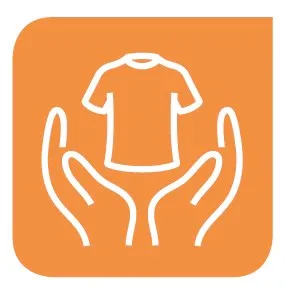
There’s a reason you’re about to wash it, which means you should clean your hands after you touch it.
8
After playing with or caring for your pets
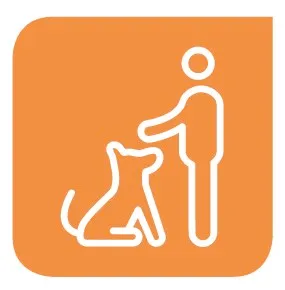
Even if your pets aren’t dirty, they may still be carrying microbes which are harmful to humans.
Follow Science Focus onTwitter,Facebook, Instagramand Flipboard